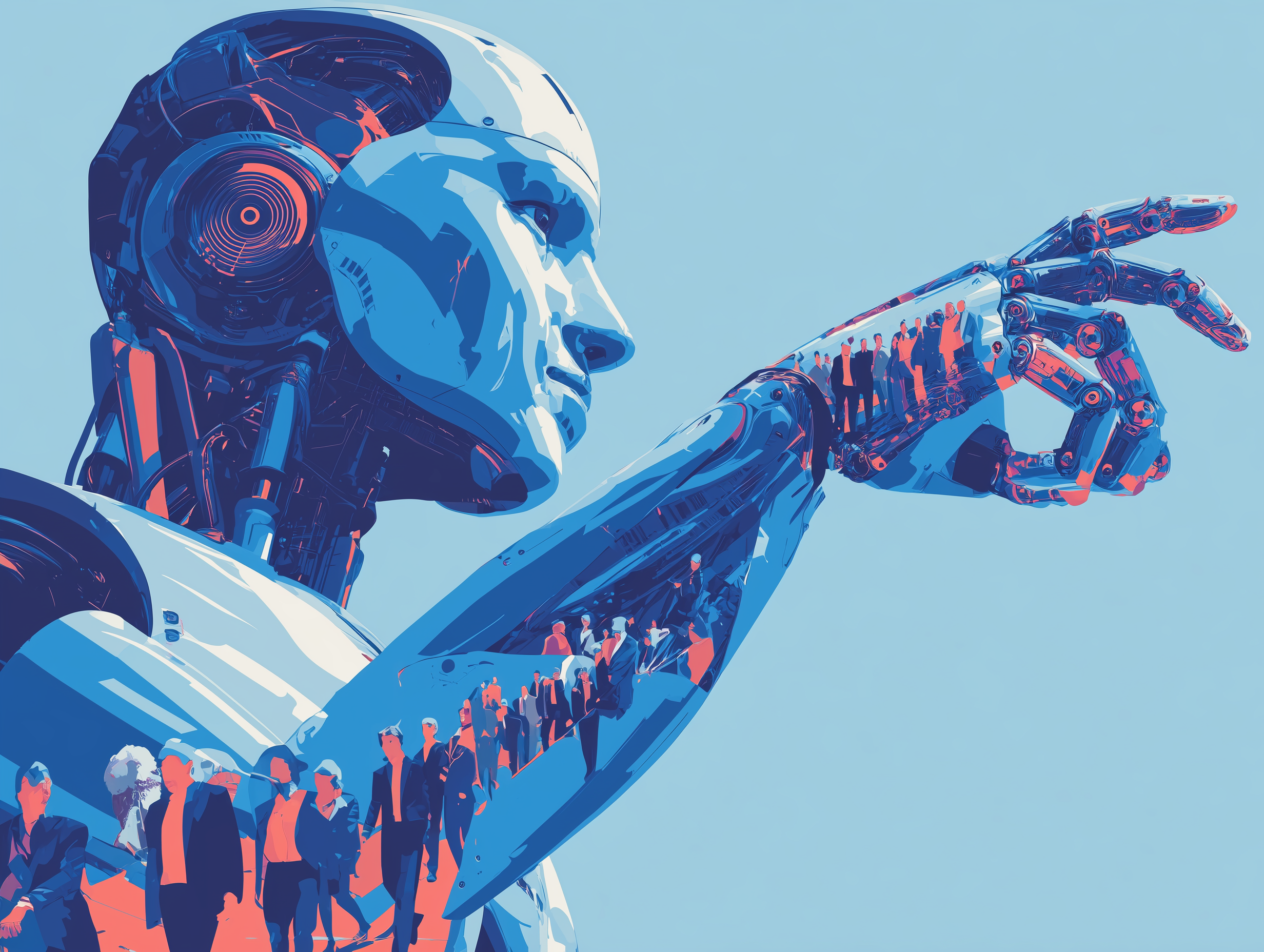The rise of AI agents and automation is not just a shift in tools. It’s a shift in how we think about work itself. From chatbots that handle customer service to agents that schedule meetings or generate reports, we’re entering a world where machines are not just assisting, but actively doing the doing. That has huge implications for businesses, but also for the people inside them.
More Than Just Efficiency
For many businesses, the draw of automation is obvious. Tasks that once took hours can now be completed in seconds. AI agents can write summaries, answer queries, process data, even draft content or code. The benefits stack up quickly. Lower operational costs. Fewer errors. Around-the-clock availability. The promise is that teams will be freed from repetitive tasks so they can focus on more meaningful, strategic work.
But this shift is not just about getting more done faster. It’s also about changing who does what, and how.
A New Kind of Worker
AI agents are not replacing people in a one-to-one sense. They are introducing an entirely new category of coworker. These agents do not sleep, complain, or need coffee breaks. But they also do not have common sense, empathy, or the ability to understand context beyond what they’ve been told.
This is where humans remain critical. The best outcomes come when agents and people work together. A content marketer, for example, might use an AI assistant to suggest blog topics, but still brings their brand voice and customer insight to craft the final message. An operations team might use automation to flag unusual patterns in supply data, but rely on human judgment to decide what to do next.
Challenges That Can’t Be Automated Away
Adopting agents at scale is not plug-and-play. Businesses face big questions. Who owns the decisions made by an agent? How do you monitor what it’s doing? What happens when it gets it wrong?
There are also concerns about transparency. Many AI systems work like black boxes. They provide outputs, but not always a clear rationale. That can be risky in industries like finance, healthcare, or law, where accountability and accuracy are critical.
Security and privacy are also front of mind. The more an agent can do, the more it needs access to. Emails. Files. Systems. The stakes are higher, and the safeguards need to keep pace.
The Human Impact
For workers, the promise of AI is more interesting work. But the reality can feel different. When an agent starts doing parts of your job, even the boring parts, it can be unsettling. Am I still needed? Am I being replaced bit by bit?
These are real questions. And they deserve honest answers. Not every role will disappear, but every role will change. Skills like adaptability, creative thinking, and emotional intelligence will become more important, not less.
Leaders need to guide their teams through this transition with clarity and care. Involve people early. Be transparent about what’s changing and why. Upskill teams to work alongside agents, not under them.
A More Human Future of Work?
Used well, AI agents and automation have the potential to make work more human, not less. By taking on the mundane, they can make space for creativity, collaboration, and connection. But that outcome is not guaranteed. It requires thoughtful design, strong ethics, and a commitment to putting people at the centre of the change.
The future of work is not man versus machine. It’s about designing a workplace where both can thrive. And that, in the end, is a job only humans can do.
